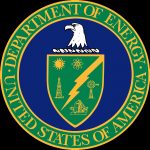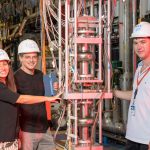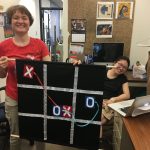From Oak Ridge National Laboratory, Aug. 26, 2020: The Department of Energy has selected Oak Ridge National Laboratory to lead a collaboration charged with developing quantum technologies that will usher in a new era of innovation. The Quantum Science Center, led by Oak Ridge, will receive $115 million over five years to realize the potential of topological quantum materials for manipulating, transferring and storing quantum information. Fermilab is a partner organization in the Quantum Science Center.
quantum computing
From University of Chicago, Aug. 26, 2020: The Department of Energy is establishing five new National Quantum Information Science Research Centers, including a center led by Argonne and a center led by Fermilab, which are each projected to receive $115 million in funding over the next five years. The Fermilab-led center, called the Superconducting Quantum Materials and Systems Center, aims to build and deploy a beyond-state-of-the-art quantum computer based on superconducting technologies. The center also will develop new quantum sensors, which could lead to the discovery of the nature of dark matter and other elusive subatomic particles.
Funding will go towards NSF-led AI Research Institutes and DOE QIS Research Centers over five years, establishing 12 multidisciplinary and multi-institutional national hubs for research and workforce development in these critical emerging technologies. Together, the institutes will spur cutting-edge innovation, support regional economic growth and advance American leadership in these critical industries of the future.
From Crain’s Chicago Business, Aug. 26, 2020: Chicago’s two national laboratories, Fermilab and Argonne, have been picked to lead national research centers for quantum computing that will receive $115 million each over the next five years. Fermilab will lead the Superconducting Quantum
Materials and Systems Center, which will take on one of the main problems of quantum technology: the length of time that a qubit, the basic element of a quantum computer, can maintain information.
Fermilab has been selected to lead one of five national centers to bring about transformational advances in quantum information science as a part of the U.S. National Quantum Initiative. The initiative provides the new Superconducting Quantum Materials and Systems Center — based at Fermilab and comprising 20 partner institutions — $115 million over five years with the goal of building and deploying a beyond-state-of-the-art quantum computer based on superconducting technologies. The center will also develop new quantum sensors, which could lead to the discovery of the nature of dark matter and other elusive subatomic particles.
Quantum computing will affect the future of every area of science, creating the need for a quantum-fluent workforce. In collaboration with two high school teachers, a group of Fermilab theorists has developed a quantum computing course for high school students. With this course, Fermilab scientists are breaking new ground in both quantum computing research and supporting the competitiveness of the STEM workforce in the quantum era.
From Live Science, May 1, 2020: A group of researchers at Fermilab has worked with high-school teachers to develop a program to train their students in the emerging field of quantum computing.
From Physics World, April 3, 2020: A collaboration that includes Fermilab scientists is exploring how quantum computing could be used to analyze the vast amount of data produced by experiments on the Large Hadron Collider at CERN. The researchers have shown that a “quantum support vector machine” can help physicists make sense out of the huge amounts of information generated at CERN.
From Northern Public Radio’s The STEM Read Podcast, March 13, 2020: Then Gillian King-Cargile interviews Fermilab Education and Public Outreach Head Rebecca Thompson to unpack the topics of quantum mechanics, determinism and quantum computing. Thompson is the creator of the Spectra comic book series and author of “Fire, Ice, and Physics: The Science of Game of Thrones.”
From HPC Wire, March 2, 2020: Fermilab scientists are collaborating with researchers at Argonne, where they’ll run simulations on high-performance computers. Their work will help determine whether instruments called superconducting radio-frequency cavities, also used in particle accelerators, can solve one of the biggest problems facing the successful development of a quantum computer: the decoherence of qubits.



